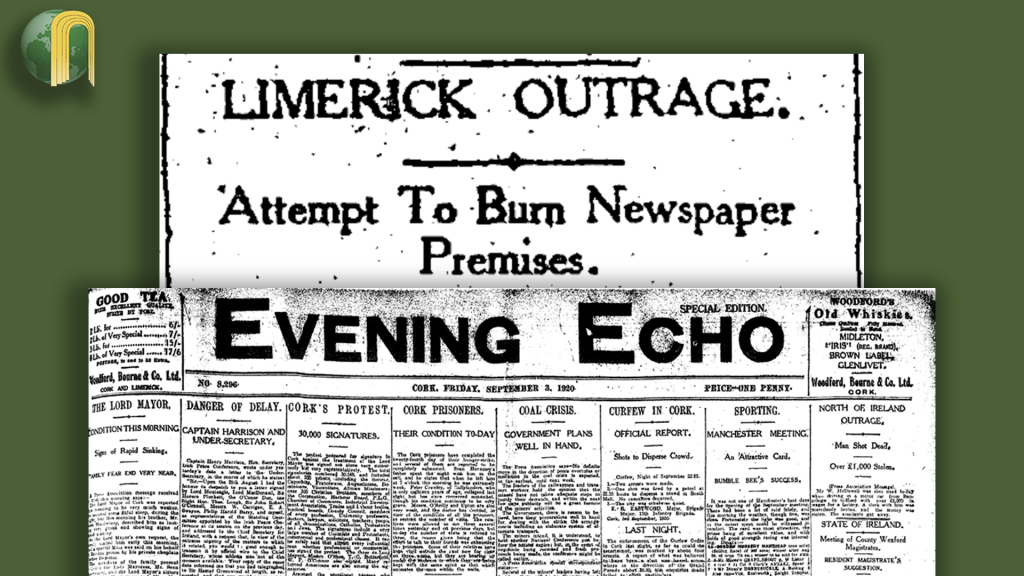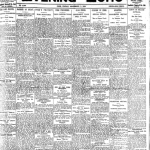
Turning their attention and ire at the civilian population in an effort to terrify them into subservience, the military also realized that they were losing the propaganda war.
It was not surprising then that they also turned their attention to newspapers and political pamphlets. On the 2 September 1920 an attempt was made to burn the
Limerick Leader newspaper on O’Connell Street, Limerick. Three men returning from work in the General Post Office noticed a flame in the building shortly after 4am and went in search of the manager EB Duggan, who lived over the premises. It was obvious to Duggan and the men in attendance that an attempt had been made to try and burn the building, most likely by members of the British military owing to the republican stanch of the newspaper. A door to the office had been broken open and a tin of petrol sprinkled over the floor. While Duggan and company were there trying to extinguish the flames, a detachment of the Welsh Fusiliers arrived and an officer promised to make inquiries into the outrage. Surprisingly, in subsequent issues of the newspaper they made little mention of the attack, perhaps fearing that the military would revisit the premises if they did so. The
Limerick Leader newspaper, first published in 1889, was described as being independent, nationalist and Catholic in nature but were not afraid to report on the injustice that the civilian population were experiencing during the War of Independence. Had it not been for the intervention and quick thinking of the three individuals this very popular provincial paper could have folded 100 years ago this month.
Source: Evening Echo 1896-current, 03.09.1920, page 2
 EveningEcho_03sep1920_page2
EveningEcho_03sep1920_page2
 EveningEcho_03sep1920_page2
EveningEcho_03sep1920_page2
